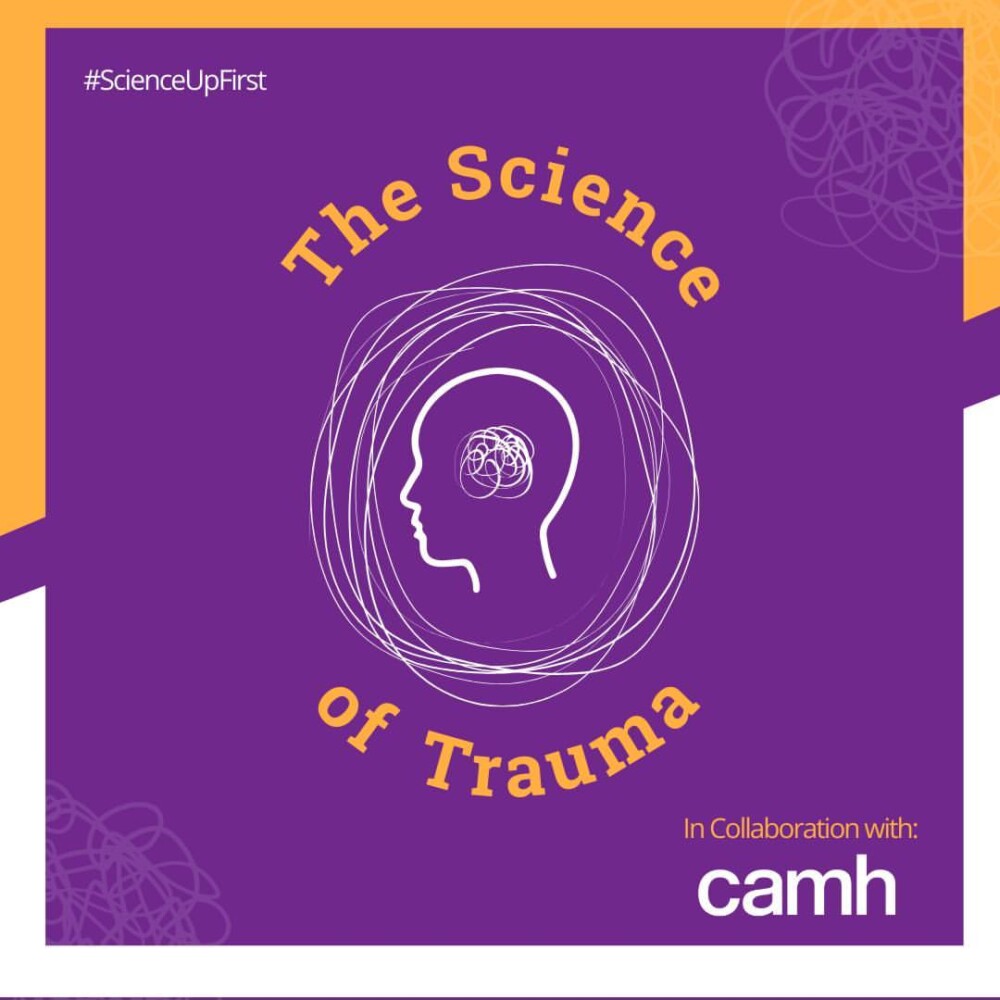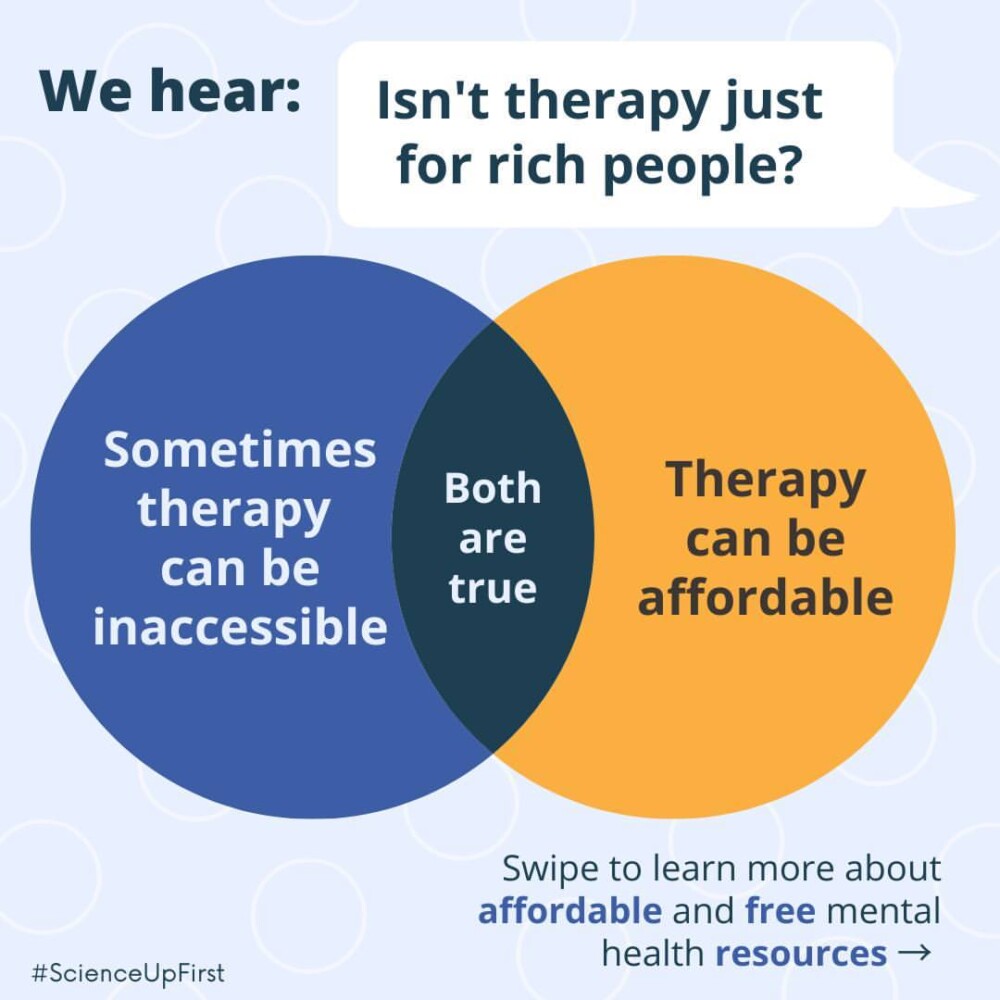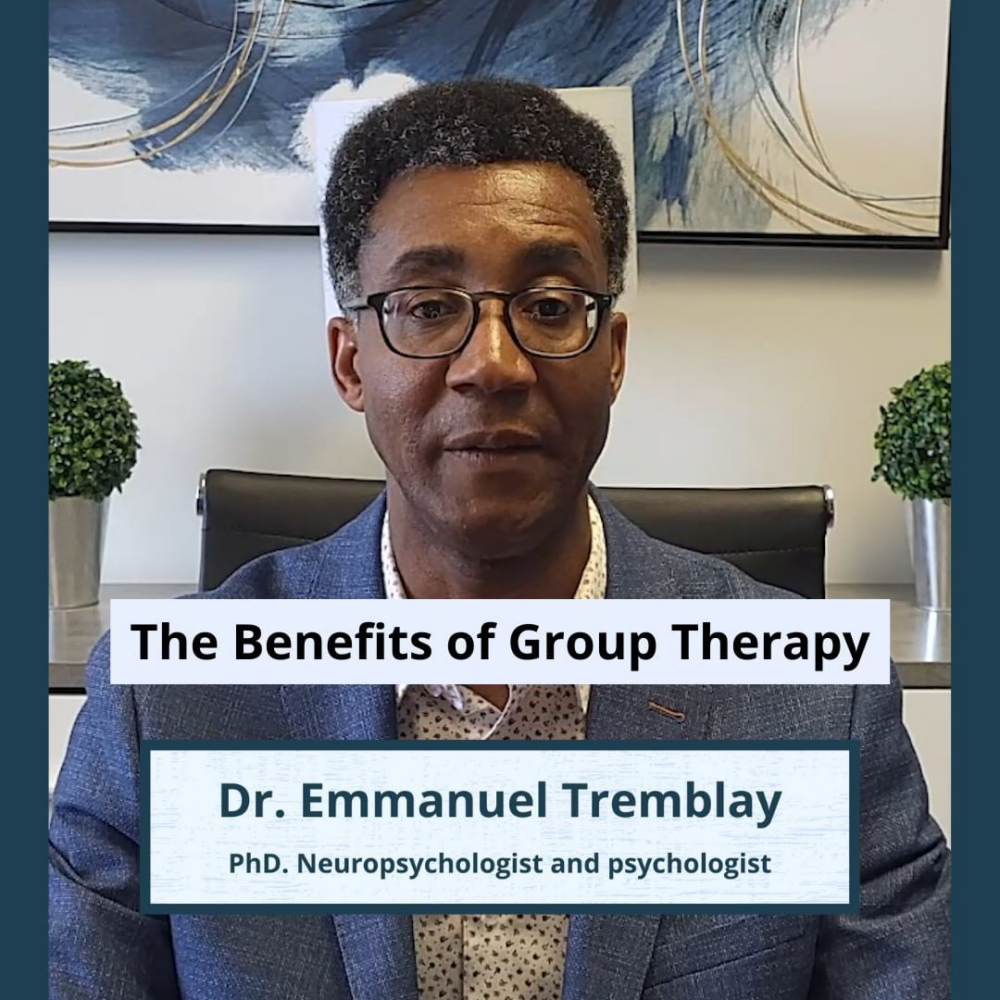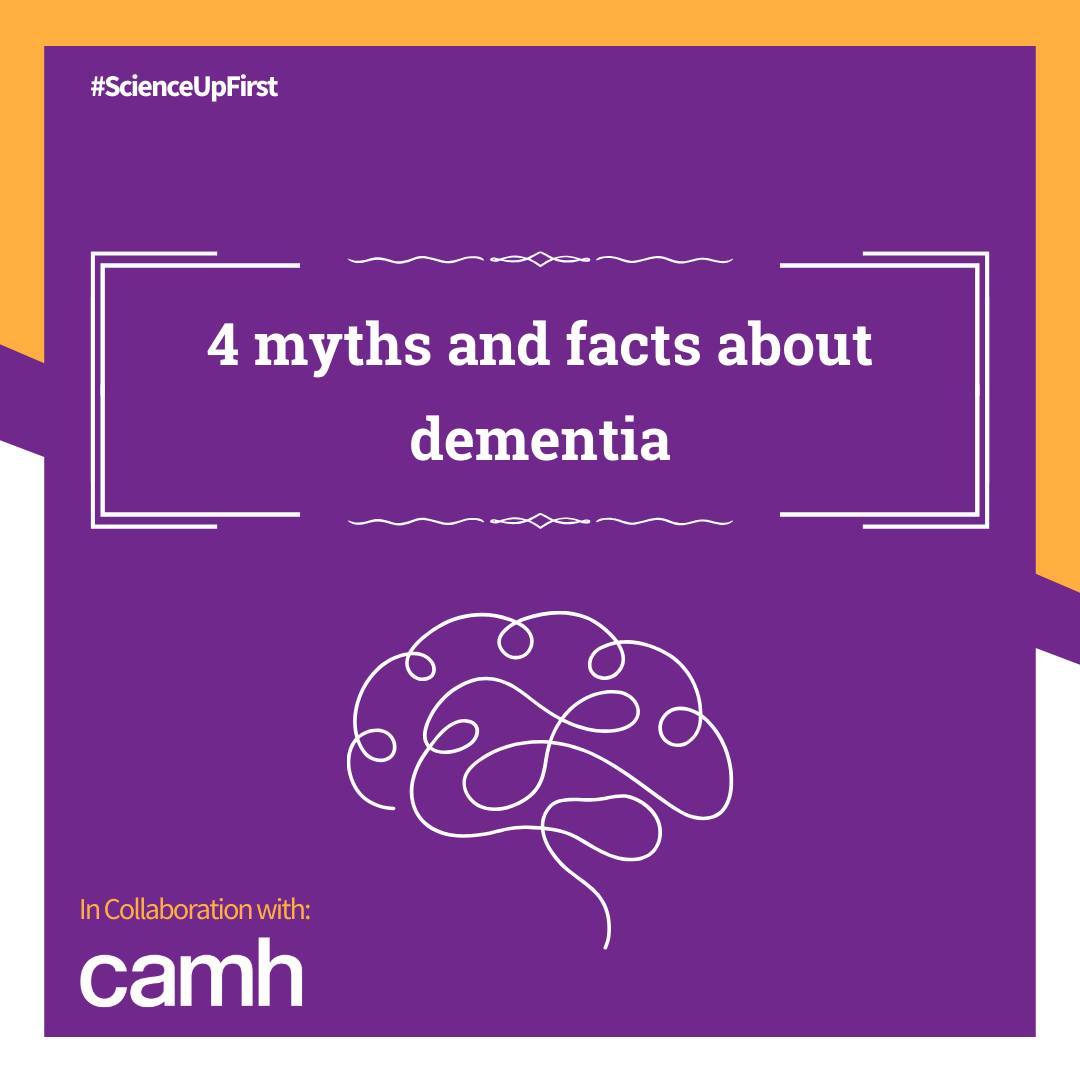
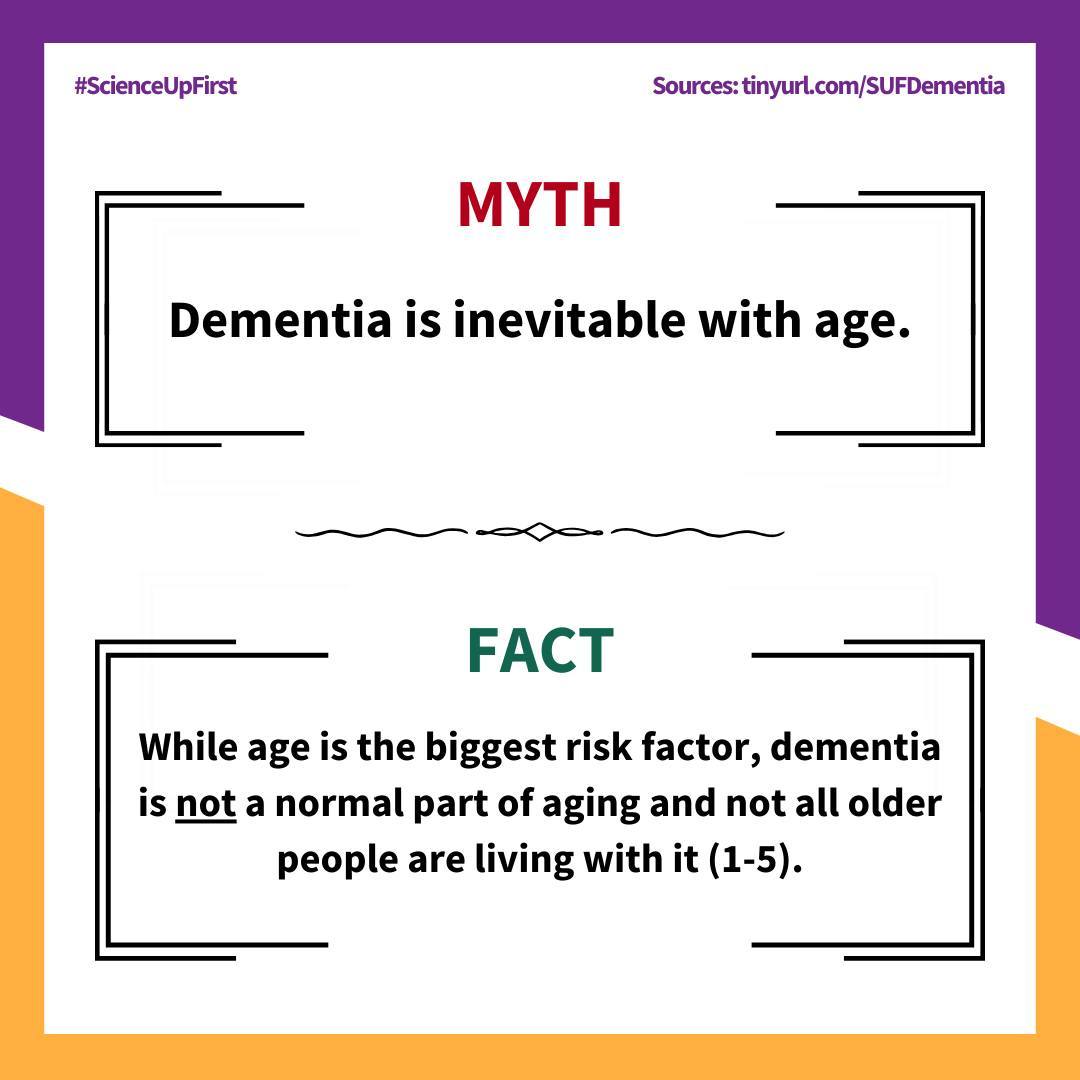
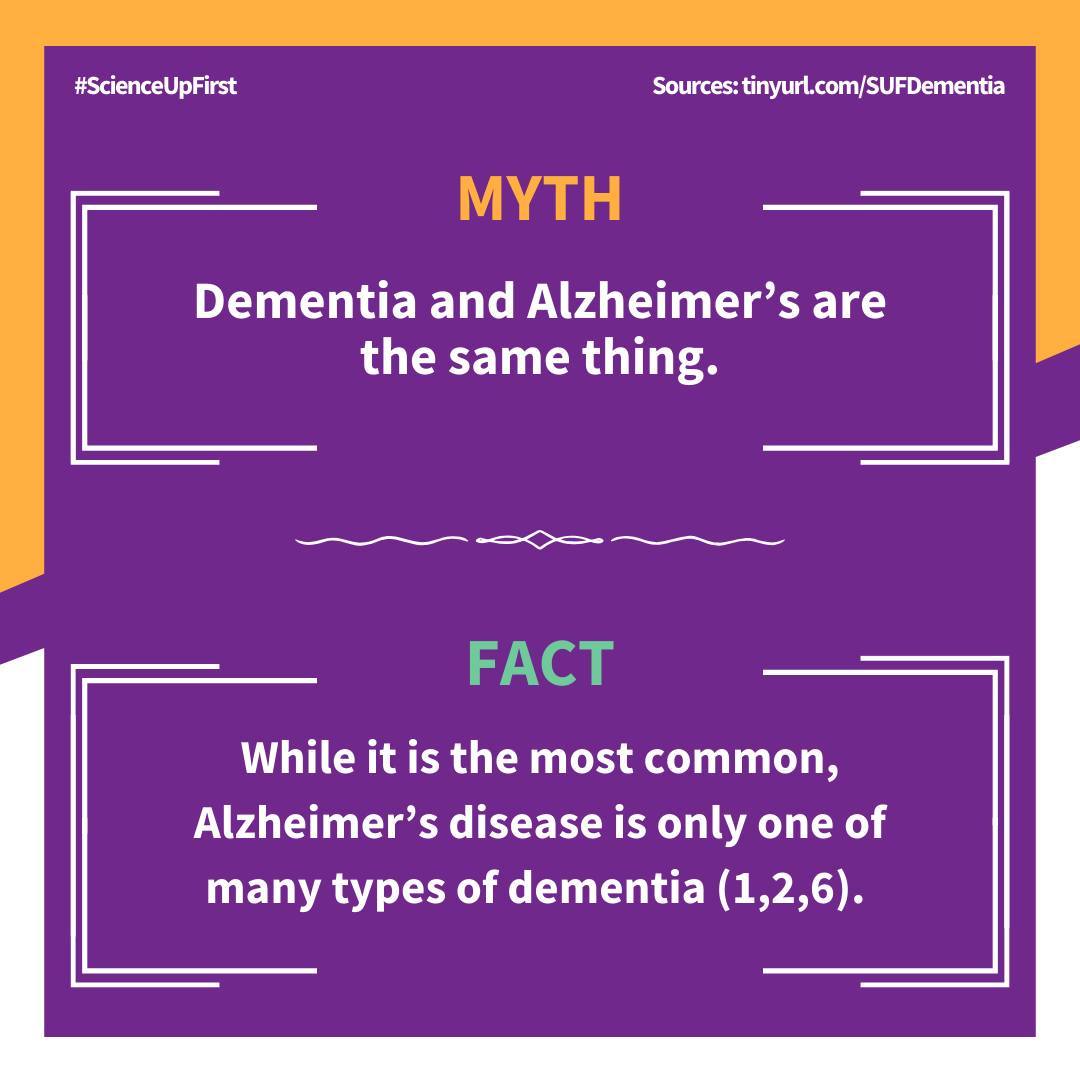
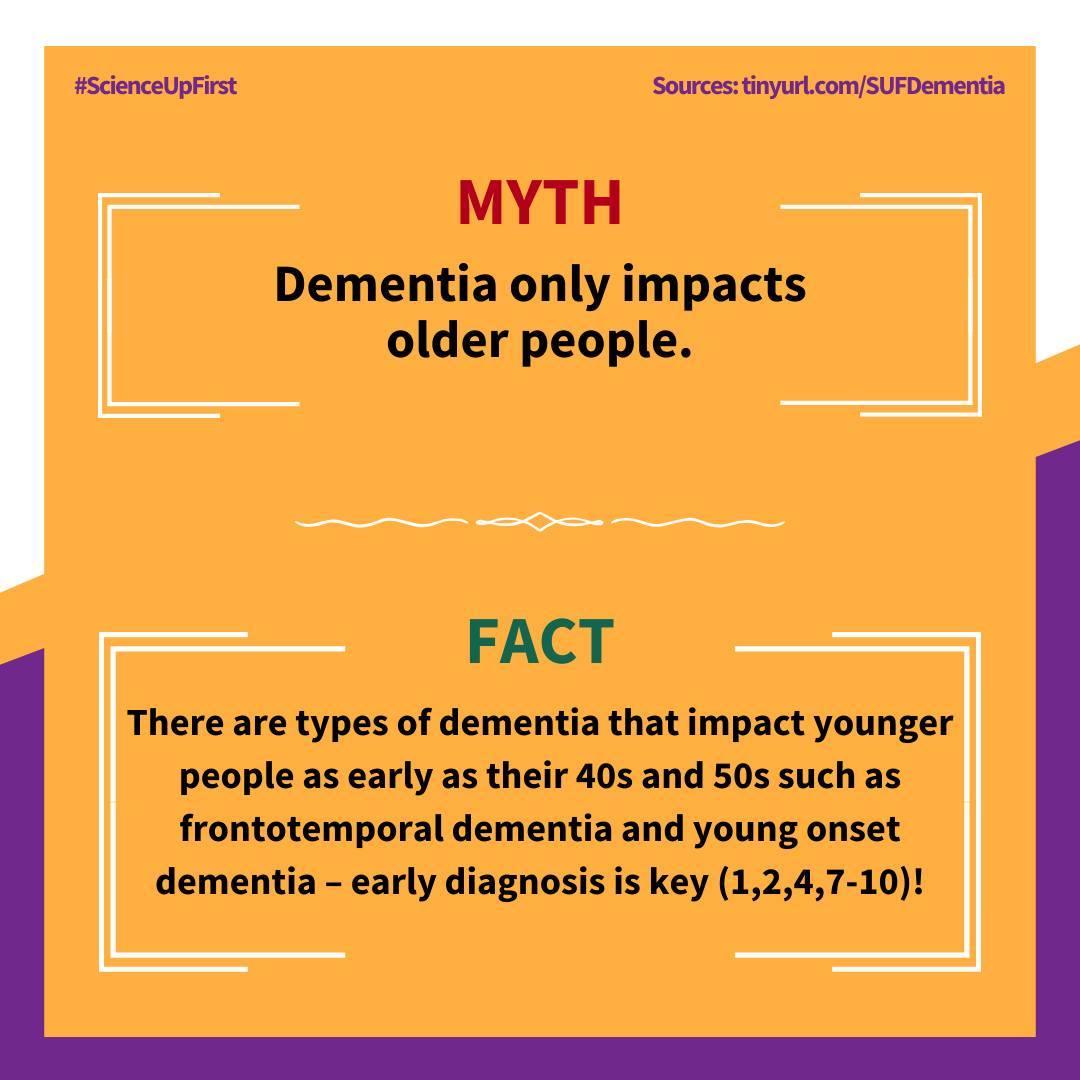
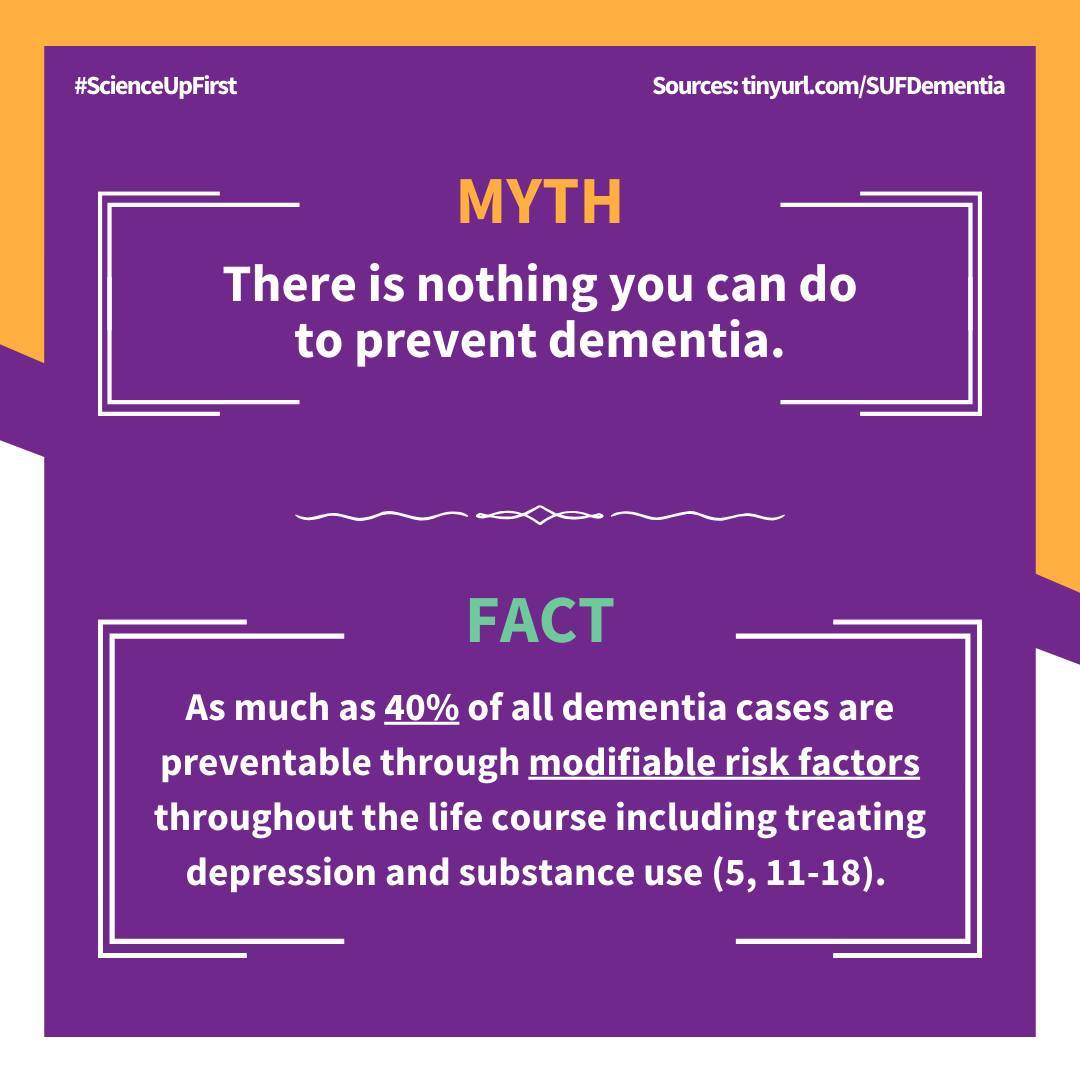
Dementia is a growing public health concern, affecting millions worldwide. In Canada, Alzheimer’s disease is among the top 10 leading causes of death (2,4,19,20). But what exactly is dementia, and how is it different from normal aging?
Forgetting events that happened last year, an old coworker’s name, where you put your keys, or occasionally getting lost can be a normal part of aging. In fact, it is fairly common for people over 65 years old to experience some form of memory loss. Unlike dementia, though, age-associated memory impairment is not caused by an underlying medical condition and doesn’t significantly disrupt a person’s day to day life or their ability to complete tasks (1,13,21).
Dementia is an umbrella term used to describe a set of symptoms caused by the progressive damage and death of brain cells, which gradually affects cognitive functions like memory, thinking, judgment, and communication. Those living with dementia may forget recent events, names of loved ones, repeat themselves, or struggle to perform familiar day to day tasks, such as paying their bills or grocery shopping (1,2,13,21,22).
Because there is a strong genetic component to dementia, there is no way to fully prevent it. However, you can reduce your risk by staying connected with the people you love, being active, managing stress, eating well, reducing alcohol, not smoking, challenging your brain, practicing good dental and sleep hygiene, taking care of your hearing and vision, and making sure any other health conditions are under control (11,12,14,18).
Early diagnosis and treatment can help manage symptoms and improve quality of life (9). If you or someone you know is experiencing symptoms of dementia, it’s important to seek professional help.
Resources
Concerned about dementia? Here are four ways to reduce your risk | Alzheimer Society of Canada
Brain-healthy tips to reduce your risk of dementia | Alzheimer Society of Canada
Challenge your brain! Eight suggestions for brain-boosting exercises | Alzheimer Society of Canada
Ten easy tips for staying active (that can protect your brain) | Alzheimer Society of Canada
Dementia: Risk factors and prevention – Canada.ca
Reduce your risk of dementia | Alzheimer’s Society
15 Things You Can Do Now To Reduce Your Risk of Dementia – YouTube
- What is dementia? | Alzheimer Society of Canada
- Dementia A Public Health Priority | Aizheimer’s Disease International & World Health Organization | 2012
- World’s largest dementia study reveals two thirds of people still incorrectly think dementia is a normal part of ageing, rather than a medical condition | Alzheimer’s Disease International (ADI) | September 2019
- Dementia in Canada – Cross-Country Report 2022 | CanAge | 2022
- Risk factors for dementia | Alzheimer Society of Canada
- Other types of dementia | Alzheimer Society of Canada
- Young onset dementia | Alzheimer Society of Canada
- Frontotemporal dementia | Alzheimer Society of Canada
- The 10 benefits of early diagnosis | Alzheimer Society of Canada
- Dementia: Overview | Government of Canada
- Brain-healthy tips to reduce your risk of dementia | Alzheimer Society of Canada
- 15 Things You Can Do Now To Reduce Your Risk of Dementia | Baycrest’s YouTube Playlist
- What is Dementia? | Alzheimer Society of Canada
- Concerned about dementia? Here are four ways to reduce your risk | Alzheimer Society of Canada
- Challenge your brain! Eight suggestions for brain-boosting exercises | Alzheimer Society of Canada
- Ten easy tips for staying active (that can protect your brain) | Alzheimer Society of Canada
- Dementia: Risk factors and prevention | Government of Canada
- Reduce your risk of dementia | Alzheimer’s Society
- Table 1 Top 10 leading causes of death (2019 to 2022) | Government of Canada
- Dementia | World Health Organization | March 2023
- The differences between normal aging and dementia | Alzheimer Society of Canada
- 10 warning signs of dementia | Alzheimer Society of Canada
Share our original Tweet!
Dementia: It's more than just forgetting where you put your keys. 🧠🔑
— ScienceUpFirst | LaScienced'Abord (@ScienceUpFirst) October 4, 2024
Learn to understand the signs and symptoms – early diagnosis is key to managing this complex condition. 👇https://t.co/rnKjOYX76Q #ScienceUpFirst pic.twitter.com/R5cemKtr5l
View our original Instagram Post!

